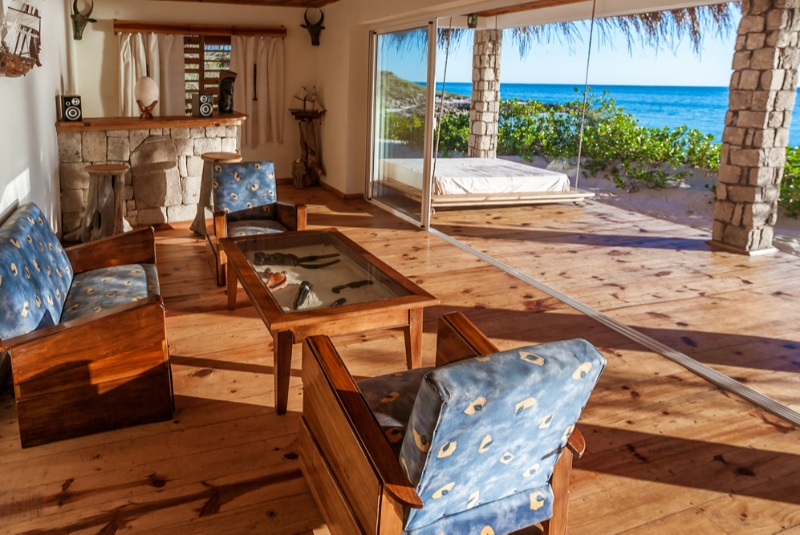Escaping for the weekend doesn't have to cost a fortune. In fact, some of the most memorable getaways happen when you're creative, intentional, and willing to step slightly off the beaten path. Whether you're craving a quiet retreat in nature or a city adventure packed with culture, planning a weekend trip on a budget is not only possible—it can be surprisingly fun.
With the right approach, you can build a short, restorative trip without compromising your savings goals. Here’s a practical, step-by-step guide to planning a weekend getaway that delivers value, experience, and relaxation—all within budget.
Start with a Realistic Budget
Before you begin choosing destinations or booking accommodations, define exactly how much you're able (and willing) to spend. Your total budget should include transportation, lodging, food, activities, and a little buffer for unexpected costs. If you’re planning for two people, decide whether the budget is per person or for the trip as a whole.
Budgeting early prevents overspending later. It also helps you set clear expectations and priorities for the trip. You may find you’re willing to splurge a bit on a nice dinner if it means spending less on transportation or lodging.
Pick a Destination Close to Home
When time and money are limited, proximity is your best friend. Choosing a destination within driving distance—or even a train ride away—saves you the cost of airfare and gives you more flexibility with your schedule. National parks, state beaches, countryside cabins, or nearby towns with historical charm all make for fantastic weekend trips.
If you're looking to unwind, consider spots known for their natural beauty and peaceful settings. For something more vibrant, look at walkable cities with free events or scenic downtown areas.
Travel During the Off-Season
Even weekend trips can be significantly cheaper when taken during off-peak times. Tourist-heavy destinations often lower prices outside of major holidays or school breaks. For instance, beach towns may offer deals in early spring or late fall, while ski resorts could be more affordable before snowfall or right after the season ends.
You’ll benefit from better prices on accommodations and activities—and you won’t have to battle the crowds.
Compare Lodging Options Thoughtfully
Hotel rates can be steep, especially in popular areas. Fortunately, there are plenty of alternatives that balance comfort with affordability:
-
Vacation rentals: Sites offering apartments or private rooms are often less expensive than hotels and come with kitchens, which can help you save on meals.
-
Hostels: These aren’t just for backpackers anymore. Many offer private rooms at lower rates than hotels.
-
Motels and budget inns: Look for well-reviewed options just outside the city center for better rates.
-
Camping: If you’re up for adventure, camping in a national park or designated campground is an incredibly affordable (and scenic) option.
If you do book a hotel, look for places that offer perks like free parking or complimentary breakfast.
Be Flexible with Dates and Timing
Flexibility often leads to lower prices. Consider traveling on a Friday morning and returning Sunday evening, or even shifting your trip to a less popular weekend. Avoid long weekends when rates are at their highest. Being open to different departure and return times allows you to grab last-minute deals or discounts during slower travel periods.
Plan Meals in Advance
Food can easily become one of the biggest expenses during a trip. Avoid the temptation to eat every meal at restaurants by packing snacks, meal prepping, or booking accommodations with a kitchenette. Stop by a local grocery store and prepare at least one meal a day yourself—it adds up quickly.
You can also save by opting for casual local eateries, food trucks, or happy hour deals. Don’t forget to bring reusable water bottles and coffee mugs to avoid buying bottled drinks on the go.
Look for Free or Low-Cost Activities
One of the best parts of a weekend trip is discovering local charm—and much of it doesn’t cost a thing. With a little research, you can fill your itinerary with affordable fun. Consider:
-
Exploring public parks or nature trails
-
Visiting local art galleries or open-air markets
-
Attending free community events or street fairs
-
Taking a self-guided walking tour of the town
-
Relaxing on a beach or by a lake
Some cities also offer “museum days” with free admission or discounted entry at certain times.
Use Public Transportation or Walk
If your destination has a reliable public transit system, skip the rental car or daily ride-shares. Buses, trams, or subways are usually inexpensive and offer a more authentic way to explore a new area. In compact towns or urban districts, walking is often the best—and healthiest—way to get around.
You’ll save money, avoid parking fees, and get to experience the area at a slower, more immersive pace.
Pack Wisely and Avoid Last-Minute Purchases
Packing light but efficiently helps you avoid unnecessary spending on forgotten items. Bring weather-appropriate clothing, walking shoes, sunscreen, snacks, and chargers. Don’t forget your ID, medications, and any booking confirmations you might need.
If you're heading somewhere with specific activity plans—like hiking, swimming, or cycling—double-check that you’ve packed everything required so you don’t end up buying gear you already own.
Monitor Discounts and Rewards
Before booking anything, check whether you're eligible for discounts through memberships like AAA, student or teacher IDs, military service, or even certain credit cards. Many travel platforms offer cash-back incentives or loyalty points that can be applied to your current or future trip.
If you regularly use travel apps or browser extensions, enable notifications for flash sales or travel bundles.
Keep It Simple
Finally, resist the urge to over-plan. A successful weekend getaway doesn’t require a packed itinerary. In fact, having downtime or spontaneous moments often makes the trip more relaxing and enjoyable. Pick a few key experiences, allow room for flexibility, and keep your schedule loose enough to explore what catches your eye.
After all, the goal is to return home feeling refreshed—not exhausted.




